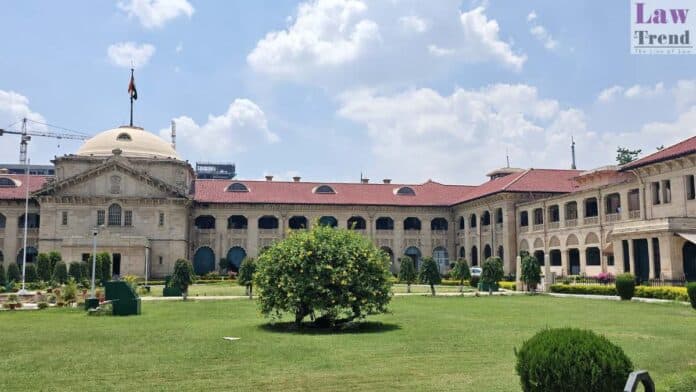The Allahabad High Court has reiterated that the power to quash an FIR or criminal proceeding must be used sparingly, with utmost caution, and only in exceptional cases where the complaint does not disclose any cognizable offence or where continuation of the investigation would amount to an abuse of process of law.
A division bench of Justice Chandra Dhari Singh and Justice Lakshmi Kant Shukla made the observation while dismissing a writ petition filed by Parul Budhraja and three others, who sought the quashing of an FIR registered against them in 2024.
The petitioners argued that the impugned FIR was a second FIR on identical facts, lodged with mala fide intent and after an inordinate delay of more than five years from the original transaction. They submitted that the earlier FIR, filed by informant Shubham Agnihotri at the same police station in 2021, had already been investigated and closed after no offence was found against them.
Relying on the Supreme Court’s decision in TT Antony v. State of Kerala (2001), the petitioners contended that the registration of a second FIR on the same set of facts is barred in law.
Counsel for the complainant opposed the plea, arguing that the 2024 FIR arose from a distinct incident involving the alleged forgery and use of fabricated documents — including a false declaration and a forged distributor application form bearing counterfeit signatures and a fake notarial seal — to shield the accused from the main cheating case of 2019 related to an investment scheme.
It was pointed out that these acts were committed after the registration of the first FIR, and therefore constituted a fresh offence warranting independent investigation.
Rejecting the plea, the bench held that the bar against a second FIR applies only where both FIRs relate to the same incident or transaction.
“The registration of a subsequent FIR on the same background is not legally prohibited if it discloses new and distinct offences based on fresh facts,” the court observed.
Referring to the apex court’s ruling in TT Antony, the bench clarified that while the judgment prohibits a second FIR concerning the same transaction or occurrence, it does not preclude a subsequent FIR based on a different incident, discovery of a larger conspiracy, or emergence of new facts.
The bench further noted:
“The rule of sameness must be applied pragmatically and if the scope and object of the subsequent FIR are distinct from the earlier one, the bar against a second FIR does not operate.”
Finding no merit in the petition, the High Court dismissed the writ plea, upholding the validity of the 2024 FIR. It held that the allegations of forgery and fabrication disclosed fresh offences distinct from those examined earlier, warranting investigation under due process.




